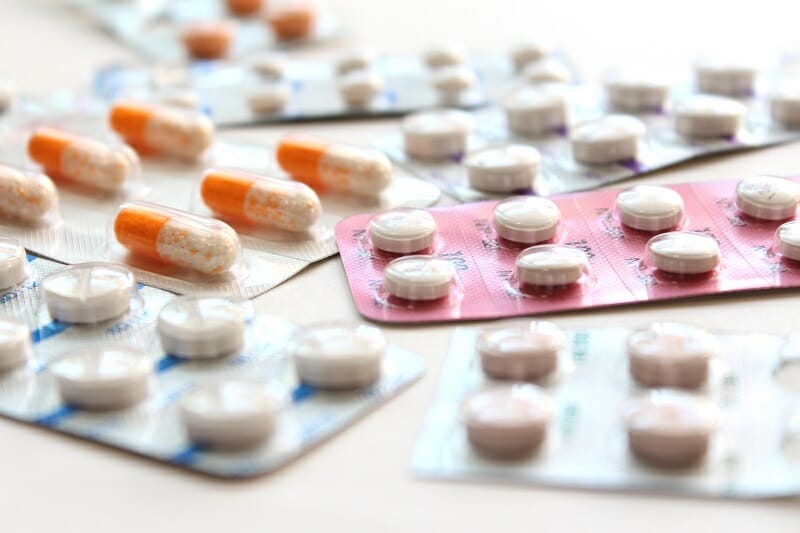Depression is a debilitating mental illness that can cause a wide range of symptoms, including sadness, lack of energy, and changes in appetite. It is estimated that around 7% of adults in the world suffer from depression at some point in their lives. While there are many different treatment options available for depression, not all of them are effective or safe. In this blog post, we will discuss the use of propranolol for the treatment of depression. We will look at the evidence supporting its use and explore potential side effects.
Contents
- 1 What Is Depression?
- 2 What Is Propranolol?
- 3 Propranolol for Depression
- 4 Working of Propranolol For Depression
- 5 Dosage of Propranolol For Depression
- 6 Benefits of Pregabalin For Depression
- 7 Side-Effects of Pregabalin For Depression
- 8 Tips To Manage Side-Effects of Pregabalin For Depression
- 9 Conclusion
What Is Depression?
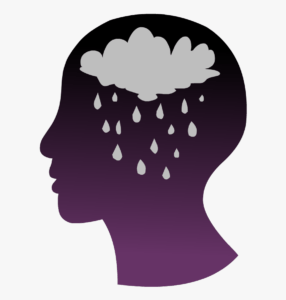 Depression is a serious mental illness that causes a persistent feeling of sadness and loss of interest. It affects how you feel, think, and behave and can lead to a variety of emotional and physical problems. You may have trouble doing normal day-to-day activities, and sometimes you may feel as if life isn’t worth living.
Depression is a serious mental illness that causes a persistent feeling of sadness and loss of interest. It affects how you feel, think, and behave and can lead to a variety of emotional and physical problems. You may have trouble doing normal day-to-day activities, and sometimes you may feel as if life isn’t worth living.
More than just a bout of the blues, depression isn’t a weakness and you can’t simply “snap out” of it. Depression may require long-term treatment. But don’t get discouraged. Most people with depression feel better with medication, therapy, or both. The treatment of depression also prevents relapses.
The treatment methods for depression are many and varied, but one that is often overlooked is the use of beta-blockers. Beta-blockers have been used to treat a variety of conditions for decades, including anxiety, migraines, and high blood pressure. But recent studies have shown that they may also be effective in treating depression.
What Is Propranolol?
Propranolol is a medication that belongs to a class of drugs called beta-blockers. Beta-blockers work by blocking the effects of the hormone epinephrine, also known as adrenaline. This action causes the heart to beat more slowly and with less force, which reduces blood pressure. Propranolol is used to treat high blood pressure, heart rhythm disorders, angina (chest pain), migraines, tremors, and other conditions. It is also sometimes used to prevent stage fright or public speaking anxiety.
Propranolol for Depression
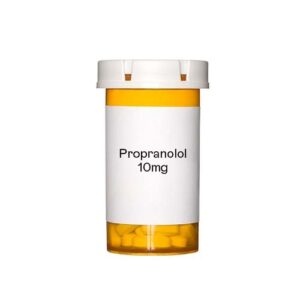
Studies have shown that propranolol can be an effective treatment for depression. In one study, patients with major depressive disorder who were taking an antidepressant medication continued to experience symptoms of depression such as low energy, poor concentration, and sleep problems. But when they were also given propranolol, their symptoms improved significantly.
Another study found that propranolol was just as effective as the antidepressant medication imipramine in treating patients with major depression who had not responded to other treatments. And unlike imipramine, which can cause side effects such as dry mouth, constipation, and blurred vision, propranolol is generally well-tolerated.
Propranolol may work by reducing the activity of certain areas of the brain that are involved in the stress response. It is thought to act on receptors for norepinephrine and serotonin, two neurotransmitters that play a role in mood regulation.
Working of Propranolol For Depression
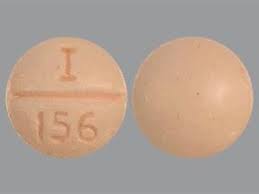
The working of propranolol for depression is not fully understood. It is thought to work by blocking the action of certain chemicals in the brain, such as adrenaline. This prevents them from having an effect on the heart and blood vessels, which helps to reduce blood pressure. Propranolol also decreases the activity of the sympathetic nervous system, which can help to relieve symptoms of anxiety.
It also works by blocking the action of a hormone called histamine. This can help to reduce inflammation and swelling. Propranolol is thought to be a safe and effective treatment option for depression. It has been shown to be as effective as other antidepressants, such as tricyclic antidepressants and selective serotonin reuptake inhibitors. Propranolol may also have fewer side effects than other antidepressants.
If you are considering taking propranolol for depression, it is important to speak to your doctor first. They will be able to advise you on the best course of treatment for your individual circumstances.
Dosage of Propranolol For Depression
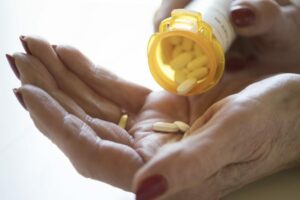 The dosage of propranolol for depression treatment varies depending on the person. It is important to follow the doctor’s orders and not to change the dosage without first talking to a healthcare professional. The usual starting dose is 40 mg two or three times daily. The dose may be increased by your doctor if needed. If you experience any side effects, talk to your doctor about lowering the dose. Propranolol is usually taken for four to six weeks before the full effect is felt. Some people may need to take it for longer periods of time.
The dosage of propranolol for depression treatment varies depending on the person. It is important to follow the doctor’s orders and not to change the dosage without first talking to a healthcare professional. The usual starting dose is 40 mg two or three times daily. The dose may be increased by your doctor if needed. If you experience any side effects, talk to your doctor about lowering the dose. Propranolol is usually taken for four to six weeks before the full effect is felt. Some people may need to take it for longer periods of time.
It can be taken in pill form or as an injection. The pill form is taken by mouth, usually two or three times a day. The injection is given intramuscularly (into a muscle) or intravenously (into a vein).
When taking propranolol for depression, it is important to follow the doctor’s orders and not to change the dosage without first talking to a healthcare professional. The usual starting dose is 40 mg two or three times daily. The dose may be increased by your doctor if needed. If you experience any side effects, talk to your doctor about lowering the dose. Propranolol is usually taken for four to six weeks before the full effect is felt. Some people may need to take it for longer periods of time.
You should take propranolol at the same time each day with or without food. Swallow the tablet whole; do not chew or crush it. If you are taking the extended-release formulation, swallow it whole and do not chew or crush it. You may take propranolol with food if it upsets your stomach.
If you are taking the liquid form of this medication, shake the bottle well before each dose. Measure the liquid with a special measuring spoon or cup, not with a regular table spoon. If you do not have a dose-measuring device, ask your pharmacist for one.
Benefits of Pregabalin For Depression
There are many benefits of pregabalin for depression. Some of these benefits are:
Improves Mood
One of the main benefits of pregabalin is that it can help improve your mood. This is because the drug increases the levels of certain chemicals in the brain that are responsible for regulating mood. It also helps to reduce anxiety and improve sleep quality.
Reduces Inflammation
Pregabalin also has anti-inflammatory effects. This can be beneficial for people with depression who also have inflammatory conditions such as rheumatoid arthritis or Crohn’s disease.
Anxiety Relief
Another benefit of pregabalin is that it can help relieve anxiety. This is because the drug binds to a specific area in the brain known as the alpha-two delta site. This action helps to reduce the release of certain neurotransmitters that can also cause anxiety and fear.
Stabilizes Emotions
Pregabalin can also help stabilize emotions. This is because the drug helps to control the levels of serotonin and other neurotransmitters in the brain. Serotonin is a chemical messenger that plays a role in regulating mood and emotions.
Improves Sleep Quality
Pregabalin can also help improve sleep quality. This is because the drug helps to reduce anxiety and stabilize mood. It also helps to increase levels of gamma-aminobutyric acid (GABA), which is a neurotransmitter that promotes sleep. It also helps to reduce the activity of certain brain regions that can also cause wakefulness.
Gives Energy and Reduces Fatigue
Pregabalin can also help to give you energy and reduce fatigue. This is because the drug helps to increase levels of norepinephrine and dopamine in the brain. These are neurotransmitters that are associated with energy and alertness. It may also help to improve blood circulation and reduce inflammation.
Side-Effects of Pregabalin For Depression

There are many side effects of pregabalin for depression. The most common side effects include drowsiness, fatigue, headache, dry mouth, and dizziness. Other less common side effects include weight gain, trouble sleeping, and anxiety.
Drowsiness
Drowsiness is one of the most common side effects of pregabalin. It can occur when you first start taking the medication or if your dose is too high. If you experience drowsiness, it’s important to not drive or operate heavy machinery until you know how the medication affects you.
Fatigue
Fatigue is another common side effect of pregabalin. You may feel tired or sluggish when taking this medication. Fatigue can be a serious problem if it interferes with your daily activities.
Headache
Headache is a common side effect of many medications, including pregabalin. If you experience headaches while taking pregabalin, over-the-counter pain relievers may help relieve the pain.
Dry Mouth
Dry mouth is another common side effect of pregabalin. This can lead to increased thirst and the need to drink more fluids than usual. It’s important to stay hydrated when taking this medication.
Dizziness
Dizziness is a common side effect of many medications, including pregabalin. If you experience dizziness, it’s important to not drive or operate heavy machinery until you know how the medication affects you.
Weight Gain
Weight gain is a less common side effect of pregabalin. If you experience weight gain while taking this medication, talk to your doctor about ways to manage it.
Trouble Sleeping
Trouble sleeping is a less common side effect of pregabalin. If you experience trouble sleeping, talk to your doctor about ways to manage it.
Tips To Manage Side-Effects of Pregabalin For Depression
There are many tips to manage the side effects of pregabalin for depression. Some people may find that certain side-effects are more bothersome than others. It is important to discuss any concerns with a healthcare provider. Here are some tips to manage the side effects of pregabalin for depression:
- Drink plenty of fluids to stay hydrated.
- Get regular exercise to help improve mood and energy levels.
- Avoid alcohol and recreational drugs, as they can worsen depression symptoms.
- Eat a healthy diet and avoid processed foods or sugary drinks.
- Practice stress-relieving methods such as yoga or meditation.
- Get enough sleep each night and avoid caffeine before bedtime.
- Take the medication exactly as prescribed by a healthcare provider.
If side effects become bothersome, it is important to talk to a healthcare provider. They may be able to adjust the dose or recommend a different medication.
Conclusion
Propranolol may be an effective and safe treatment option for depression. It can help to reduce the symptoms of anxiety and improve mood. If you are considering taking propranolol for depression, it is important to speak to your doctor first. They will be able to advise you on the best course of treatment for your individual needs.
When taken as prescribed, propranolol is a safe and effective treatment option for depression. If you have any concerns about taking propranolol, be sure to speak to your doctor.
For more information, please contact MantraCare. Depression is a mental illness characterized by persistent feelings of sadness, hopelessness, and loss of interest in daily activities. If you have any queries regarding Online Depression Counseling experienced therapists at MantraCare can help: Book a trial Depression Therapy session
